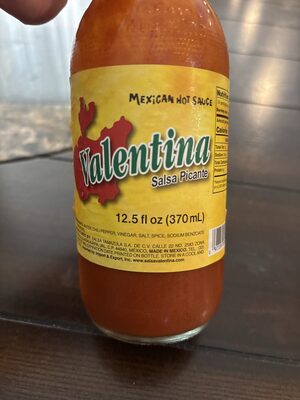
Barcode: 097339000054
Mexican hot sauce
HALAL
📝 Reason: All ingredients in the Mexican hot sauce are either plant-based or minerals, and the preservative used (sodium benzoate) is listed as Halal. There are no Haram ingredients or doubtful substances present. Therefore, the product is considered Halal.
🏷️ Category: Condiments, Sauces, Hot Sauces, Groceries
📄 Certificates: Vegetarisch, Vegan
Ingredients:
Details
Understanding the Halal Status of Mexican Hot Sauce
If you’re a fan of zesty flavors and you’re wondering about the Halal status of Mexican hot sauce, you’re in the right place. This beloved condiment is not only known for its fiery taste but also for its rich multicultural history. In this post, we’ll dive deep into what makes the Mexican hot sauce Halal, exploring the ingredients, E-numbers, and certifications that confirm its status.
What Does Halal Mean?
Halal is an Arabic term meaning ‘permissible.’ In the context of food, it refers to things that are allowed to be consumed by Muslims under Islamic law. Foods not adhering to Halal standards could be considered Haram, or forbidden. Thus, understanding the Halal status of any product is vital, especially for those adhering to these dietary guidelines.
Ingredients of Mexican Hot Sauce
- Water: Universally considered Halal.
- Chili Peppers: Plant-based and Halal.
- Vinegar: Commonly Halal unless derived from Haram sources; no such sources are indicated here.
- Salt: A mineral, thus Halal.
- Spices: Generally Halal unless mixed with forbidden substances; not indicated here.
- Sodium Benzoate (E211): Listed in the Halal E-Code list, making it Halal.
The ingredients in our featured Mexican hot sauce include water, chili peppers, vinegar, salt, spices, and sodium benzoate. A thorough analysis reveals that all these components are Halal, which is great news for those who follow Halal dietary practices.
Breaking Down the E-Numbers
An essential part of evaluating a product’s Halal status involves looking closely at E-numbers. E-numbers are codes assigned to food additives by the European Union, and they help consumers identify the function and nature of these additives.
1. Sodium Benzoate (E211)
Sodium Benzoate is a common preservative found in many food products, including sauces, and is considered Halal. This ingredient aids in preventing the growth of bacteria, yeast, and fungi, increasing the shelf-life of the hot sauce. According to Halal certification sources, it does not originate from Haram substances, confirming its Halal status.
Summary of Halal Status
The reasoning behind the Halal status of Mexican hot sauce is simple: all the ingredients are either plant-based or minerals, and the preservatives used are recognized as Halal. As noted, all components in this hot sauce, including sodium benzoate, are verified as Halal, and therefore this product is a safe option for consumers following Halal dietary laws. There are no Haram ingredients or any doubtful substances present.
Brand and Certification Context
While this Mexican hot sauce doesn’t highlight a specific brand, its qualifications are still noteworthy. It falls under the category of condiments and sauces, emphasizing its versatility in enhancing numerous cuisines, not just Mexican. Additionally, the certifications indicating the product is Vegetarian and Vegan further support the quality and adherence to conscious dietary choices.
Conclusion
In conclusion, if you’re looking for a fiery kick in your meals while adhering to Halal dietary regulations, feel assured that Mexican hot sauce is indeed Halal. The combination of ingredients and their approved E-numbers makes this condiment a perfect addition to your pantry. It stands as a reliable choice that does not compromise on your beliefs while allowing you to enjoy great flavors. So go ahead, spice up your dishes with confidence!

